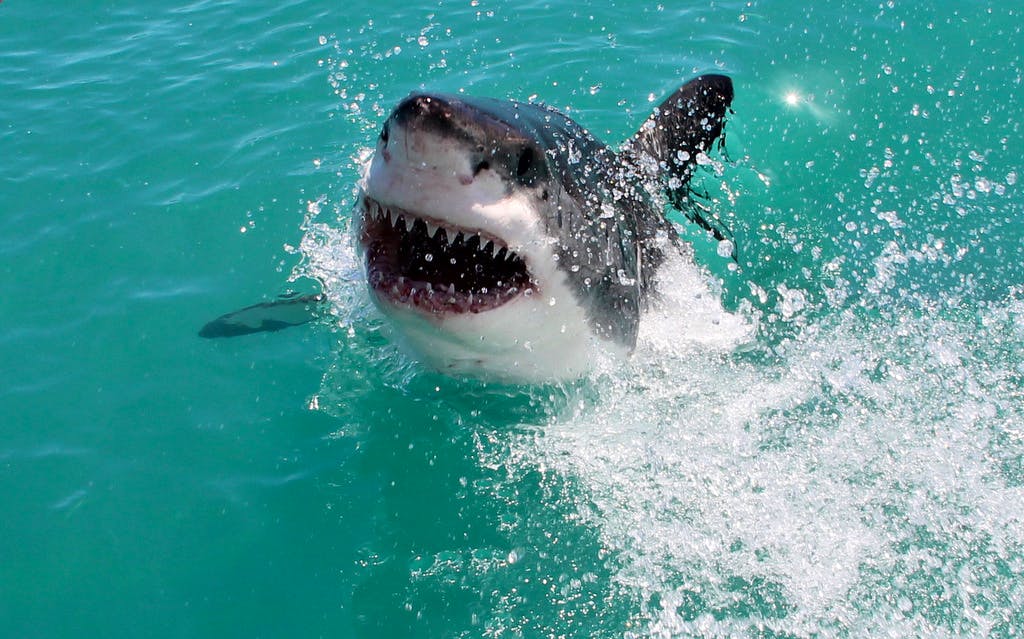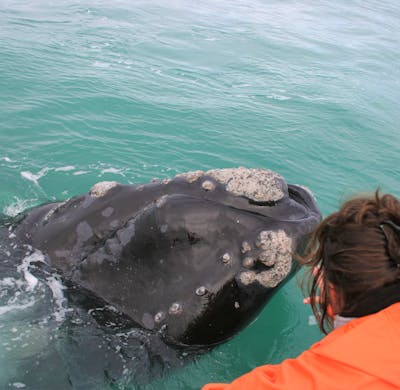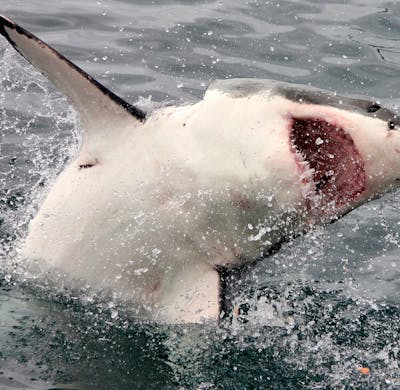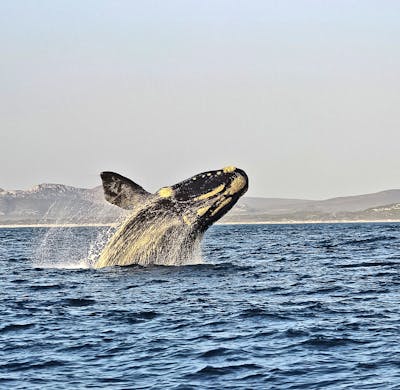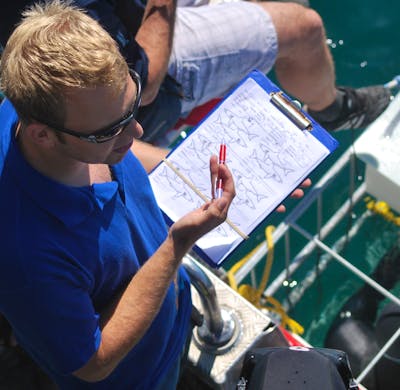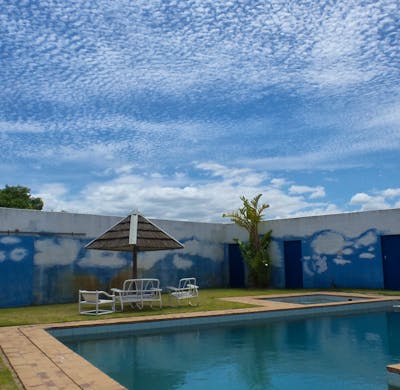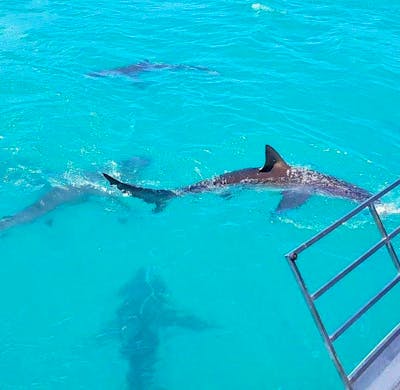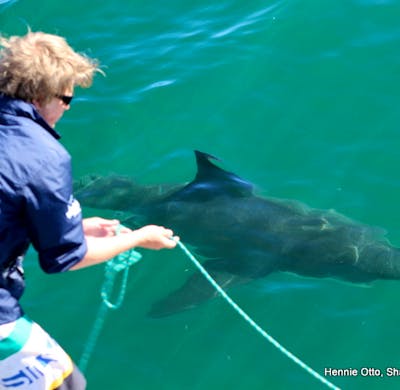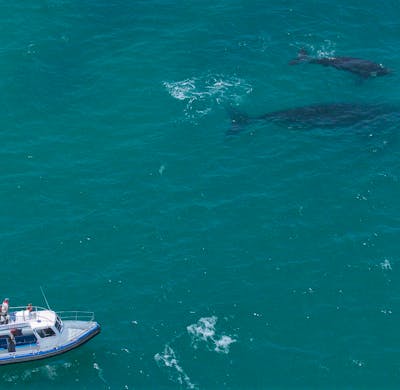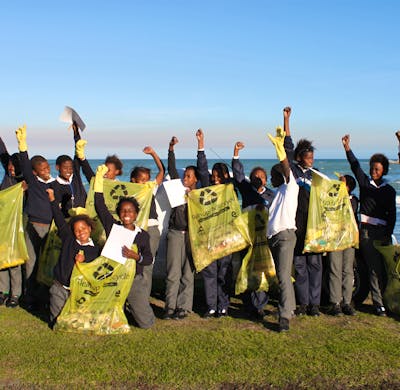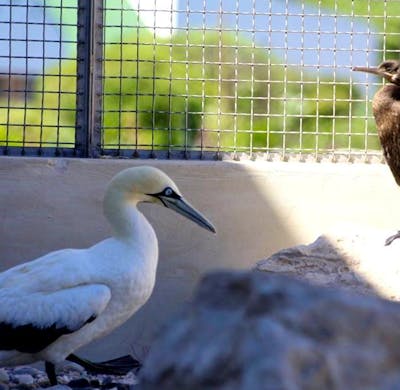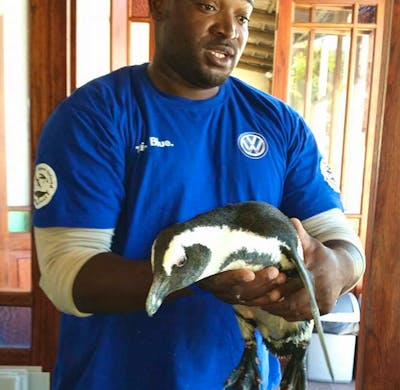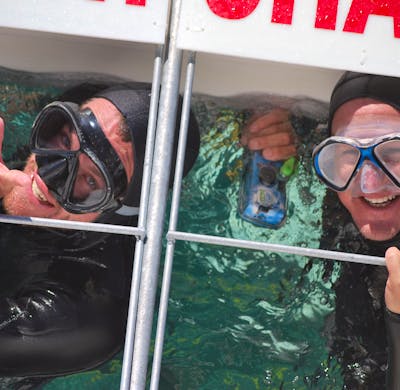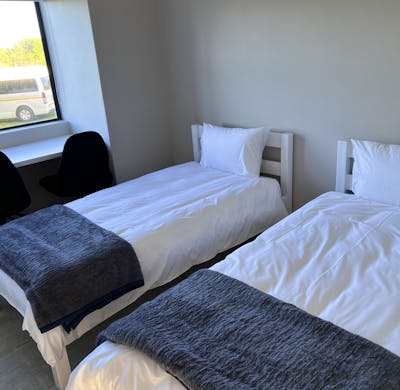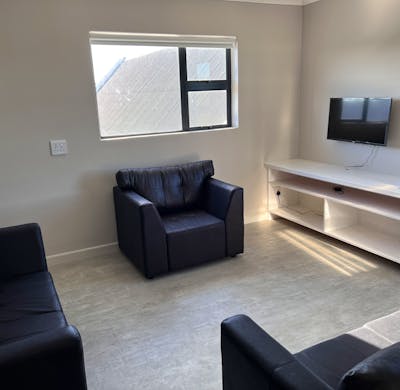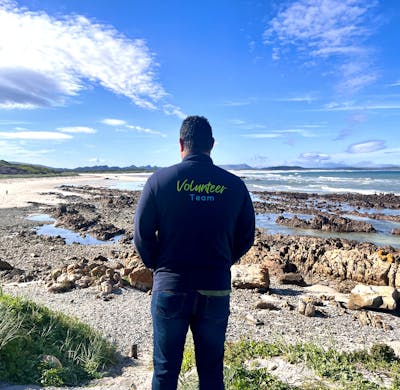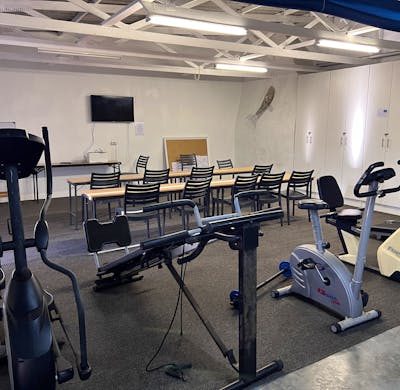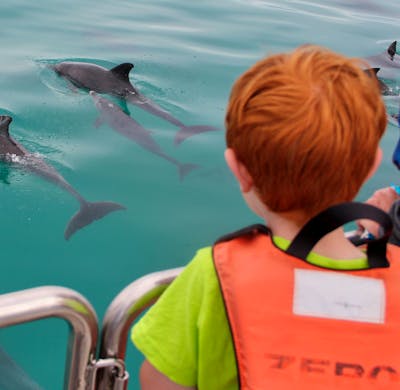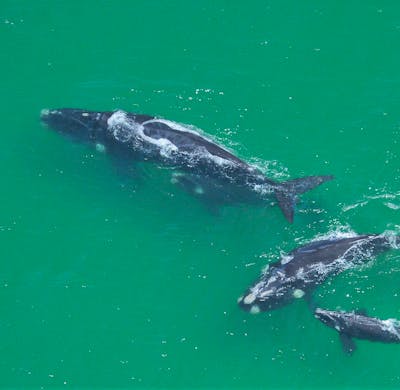from 1,058€
Whales, Sharks and Penguins Conservation
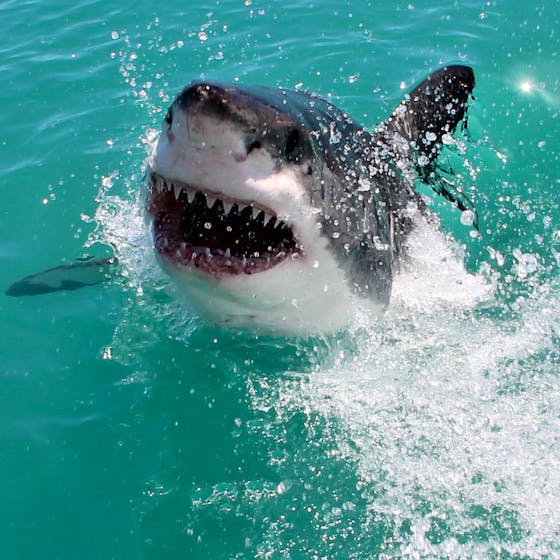
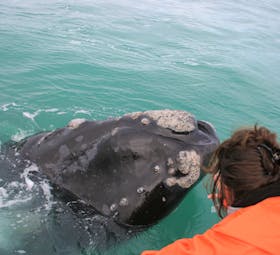
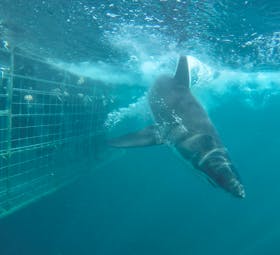
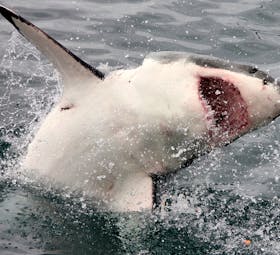
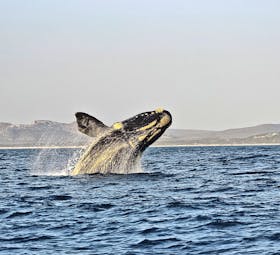
Highlights
- Assist the onboard marine biologist on the whale or research boat with monitoring and data capturing of Southern Right and Humpback whales during the annual migration period from June to December
- Help with the rehabilitation of injured, oiled and sick African Penguins and birds brought in for care and recuperation at a state-of-the-art facility. Penguin feeding takes place twice a day.
- Get involved with data capturing and research of various shark species on the boat and while cage diving. This is one of few shark projects whose marine biologist is permitted to tag White sharks.
- Taking part in lectures on shark biology and research, African Penguins, other marine mammal species, company and conservation overview, rocky shores ecology, boat safety and more.
- The area has lots of fun things to do in your free time, visit an ethical predator sanctuary, shopping in Hermanus, visit wine farms, beach horserides, beer tasting or hike the fantastic shorelines.
Especially suitable
About the program
Experience not only Whale, Dolphin, Shark and Penguin research and monitoring but also community education, environmental issues, ecology and ecotourism
This multi-faceted Marine Big 5 (Shark, Whale, Penguin, Seal and Dolphin) project is the perfect opportunity to make a difference with marine species conservation both on land and sea, ecotourism, research, and community development. There is a huge variety of work that you will be doing, and this ...
Typical day
An example of a typical day…
…please remember the daily schedule is affected according to the seasons and the weather. For the days that the weather is not advisable to go out by boat-for example due to high swells- there are still plenty of duties and activities to take part in:
5am to 8am- Time ...
Free-time activities
Some of the attractions in the area:
- Wine tasting at local wine farms which the area is famous for… we love the Sir Robert Stanford wine farm but there are plenty in the neighbouring areas to visit
- Visit the Klipgat Cave just outside De Kelders in the Walker Bay Nature Reserve the early home to ...
Requirements
What's Included
What's NOT included?
Details on arrival
It is an early Monday morning start, so volunteers need to arrive at Cape Town International Airport on the Sunday preferably in daylight hours and overnight in Cape Town at a hostel of our choice which is included in the cost.
If volunteers prefer to choose their own alternative accommodation within the Cape Town city vicinity, that will be for their own cost.
An overnight stay in Cape Town on returning on the Monday, can be arranged too for a small fee. Meals are not included in the Cape Town overnight stays.
Volunteers are welcome to arrive a few days before to do sightseeing and acclimatise to the region and we are happy to advise and give tips on what to see and do.
Although you can do our Marine Conservation project for a minimum of 8 days, we do recommend a minimum of two weeks as if bad weather days, then the boats may not go out and you may not experience all the aspects of the project.
Program fees
Meet your organization
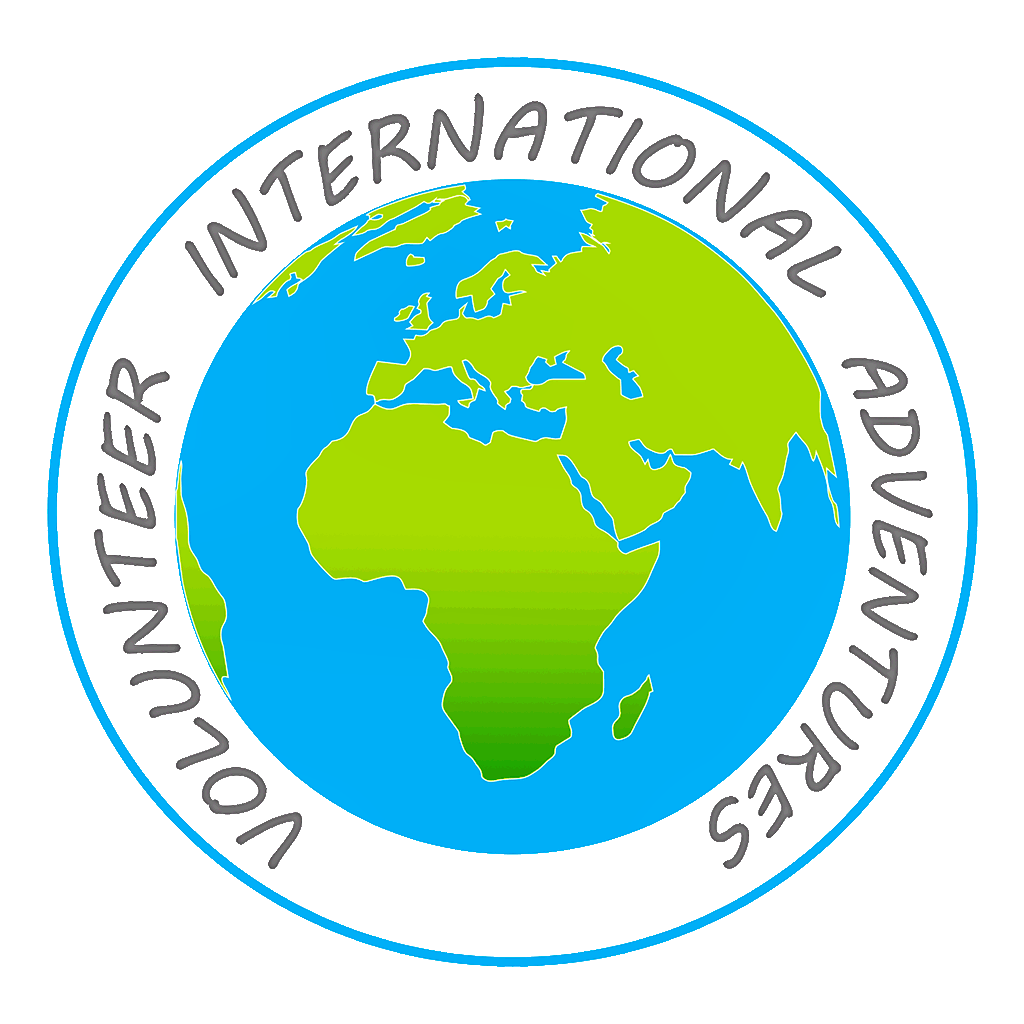
Volunteer Int. Adventures
Agency - founded in 2020
Verified by Volunteer World
Coordinated by
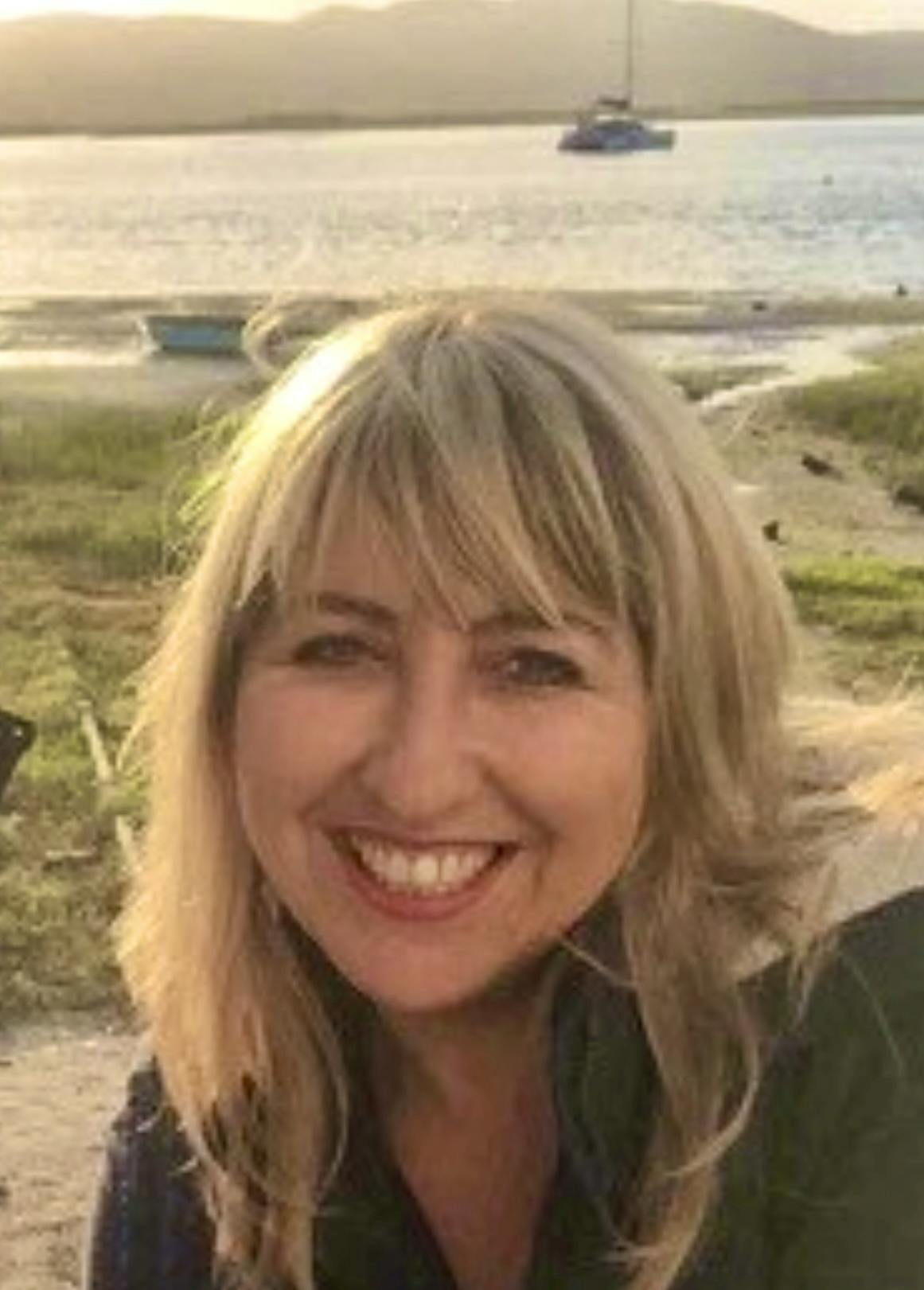
Sharon
About the project
67 reviews ·  4.7
4.7
Location

You might also be interested in
-
Diving
Diving certificate
Great White Sharks
Mako Shark
Dolphin Conservation
Penguin Conservation
Shark Conservation
Whale Conservation
50 Plus Volunteering
Family Volunteering
Group Volunteering
Marine Mammal
Projects Abroad
Animals in Africa
Adults
Couples
Best Volunteer Programs
Planning a Gap Year in South Africa
Whale and Dolphin
Volunteer Trips for College Students
Mission Trips
Marine Big 5
Animals in South Africa
Mission Trips to Africa
Voluntouring
Great White Shark in South Africa
Under 18s Volunteering
Global Volunteer Opportunities
